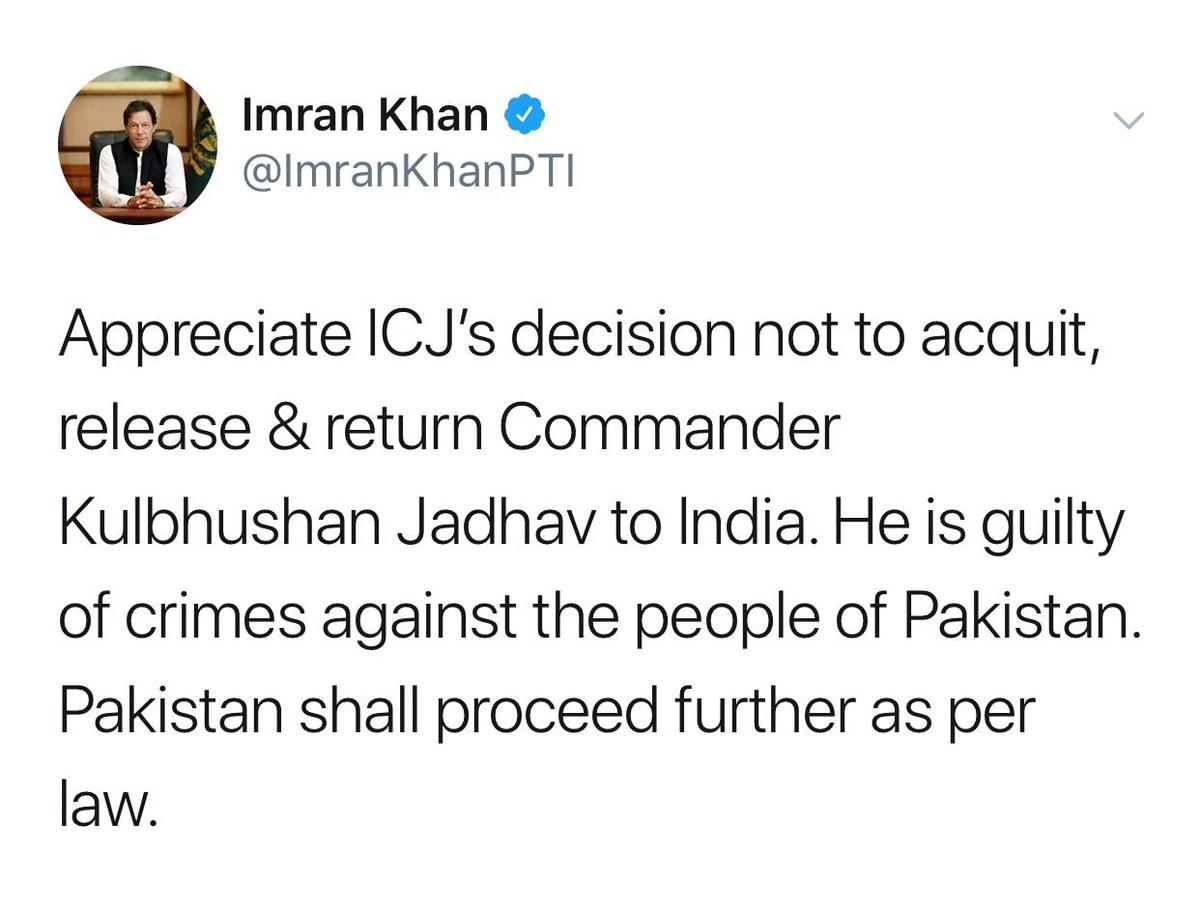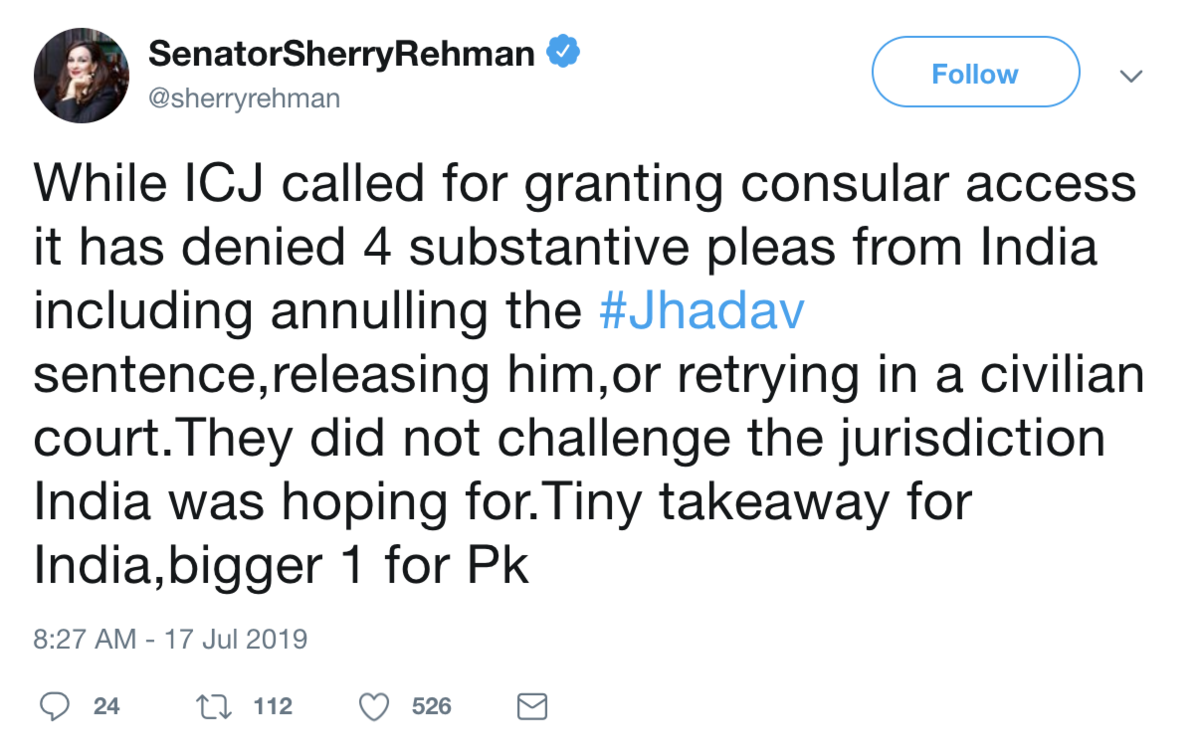ISLAMABAD: Pakistani Prime Minister Imran Khan on Thursday hailed the decision of the International Court of Justice (ICJ) not to acquit and release former Indian navy commander Kulbhushan Sudhir Jadhav who was convicted of being a spy in 2016.
On Wednesday, the ICJ, the United Nations’ top legal body for hearing disputes between states, ordered Pakistan to review a 2017 military court verdict to execute Jadhav and asked that Islamabad give India consular access to him but did not order his release, as pleaded by India.
“Appreciate ICJ’s decision not to acquit, release & return Commander Kulbhushan Jadhav to India,” Khan said in a tweet. “He is guilty of crimes against the people of Pakistan. Pakistan shall proceed further as per law.”

Pakistan has maintained that the ICJ need not intervene in the case as the Vienna convention on consular relations did not apply to “spies and terrorists,” and also that a 2008 bilateral treaty with India, that Pakistan says supersedes the Vienna pact, allowed the right to consular access to be waived where “national security” was at risk.
On Wednesday, the ICJ rejected both these arguments, saying Pakistan had breached the Vienna convention by not allowing Indian diplomats to visit Jadhav in jail or assist him during his trial at a military court. The 16-judge panel also said Pakistan had to provide an “effective review” of the case and a “continued stay of execution” of Jadhav was needed for that to happen.
It was unclear from the ruling what exactly would constitute an effective review of Jadhav’s sentence though legal experts say the Pakistani high courts or supreme court would be the most effective forums. The ICJ has no means to enforce its rulings which are final and without appeal.
In an interview with a private Pakistani TV channel, Pakistan’s military spokesman Major General Asif Ghafoor also called the ICJ’s verdict a victory for Pakistan, saying the court had not only rejected India’s plea seeking the release of Jadhav but also not annulled the military court’s judgment awarding him the death penalty, as pleaded by India.
“So this was the best possible (verdict) that we could expect,” the general said.
Sherry Rehman, a former Pakistani ambassador to the United States and a member of the opposition Pakistan People’s Party, said the ICJ had denied most of India’s major demands.
“While ICJ called for granting consular access, it has denied 4 substantive pleas from India including annulling the #Jhadav sentence, releasing him, or retrying in a civilian court,” Rehman said. “They did not challenge the jurisdiction India was hoping for. Tiny takeaway for India, bigger 1 for Pk.”

In a statement released on Wednesday night, the Pakistani Foreign Office said that as a responsible member of the International community, Pakistan had upheld its commitment to rule of law from the very beginning of the case by appearing before the World Court for the provisional measures’ hearing despite very short notice.
“Having heard the judgment, Pakistan will now proceed as per law,” a spokesman for the FO said.
Pakistan has repeatedly described India’s decision to take its case to the UN court as “political theater.”
The Vienna Convention has been a frequent subject of disputes at the ICJ, often in cases involving the United States. The ICJ’s rulings are binding though occasionally flouted, such as in 1999 when US authorities ignored an ICJ injunction and executed a German national.

















